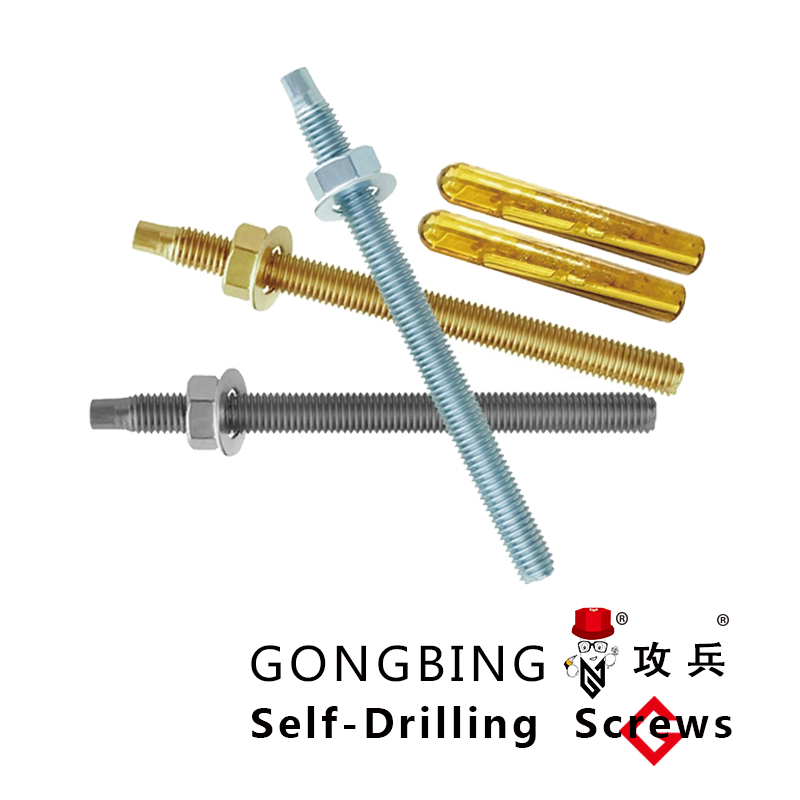Specification for Foundation Bolt Materials and Design Standards in Construction Applications
Understanding Foundation Bolt Material Specifications
Foundation bolts are critical components in various construction, chemical, and engineering projects. They play a vital role in securing structures to their foundations, ensuring stability and safety over time. The material specifications for these bolts are crucial because they directly affect the performance, durability, and overall integrity of the structures they support.
Importance of Material Specifications
When it comes to foundation bolts, the material specification defines the type of material that the bolt must be made from, as well as its properties. These specifications determine the bolt’s strength, resistance to corrosion, and ability to withstand environmental factors, such as temperature fluctuations and chemical exposure. Common materials used for foundation bolts include carbon steel, stainless steel, and alloy steel, each offering different advantages based on the application.
1. Carbon Steel This is the most common material used for foundation bolts due to its strength and affordability. However, while carbon steel bolts exhibit excellent tensile strength, they are susceptible to rusting and corrosion if not properly coated or treated. For outdoor or moist environments, carbon steel bolts often require galvanization or other protective coatings to enhance corrosion resistance.
2. Stainless Steel When higher corrosion resistance is needed, stainless steel is often the material of choice. It contains chromium, which forms a protective oxide layer on the surface, preventing rust and deterioration. Stainless steel bolts can withstand harsh environments, including marine and acidic conditions, making them ideal for various applications, such as chemical plants and coastal structures. The primary downside is their higher cost compared to carbon steel bolts.
foundation bolt material specification

3. Alloy Steel For applications requiring higher strength and durability, alloy steel bolts are the preferred option. They are made by combining carbon steel with other elements like nickel, chromium, and molybdenum to enhance their performance. Alloy steel bolts can handle higher loads and offer greater resistance to wear and fatigue. However, similar to carbon steel, they may require protective coatings in corrosive environments.
Standard Specifications
The American Society for Testing and Materials (ASTM) provides necessary standards for foundation bolts, which must be matched to the intended application. For instance, ASTM A325 and A490 are common specifications for structural bolts that provide guidelines for material, dimension, strength requirements, and testing methods. It’s crucial for engineers and construction professionals to adhere to these specifications to ensure that the bolts meet the demands of their specific projects.
Another important aspect to consider is the diameter and length of foundation bolts. The size needs to be appropriately selected based on the load requirements of the structure. The design and installation procedures must also follow industry standards to ensure that the bolts perform effectively over the lifespan of the structure.
Conclusion
In summary, understanding foundation bolt material specifications is vital for successful construction and engineering projects. The choice of materials—be it carbon steel, stainless steel, or alloy steel—depends on the environment, load requirements, and economic considerations. Proper adherence to specifications and standards ensures that the bolts provide the necessary strength and durability, contributing to the safety and longevity of structures. By carefully selecting the right foundation bolts and following the best practices for their installation, professionals can safeguard their projects against the inevitable challenges posed by natural and industrial conditions.
-
Weatherproof Plastic Expansion Anchors for OutdoorUudisedJun.06,2025
-
Sustainability in the Supply Chain: Eco-Friendly TEK Screws ProductionUudisedJun.06,2025
-
Load-Bearing Capacity of External Insulation FixingsUudisedJun.06,2025
-
Double Head Bolts: Enhancing Efficiency in Industrial MachineryUudisedJun.06,2025
-
Corrosion Resistance in Chipboard Screws: Coatings for Wholesale DurabilityUudisedJun.06,2025
-
Butterfly Toggle Bolts : Enhancing Structural ResilienceUudisedJun.06,2025
